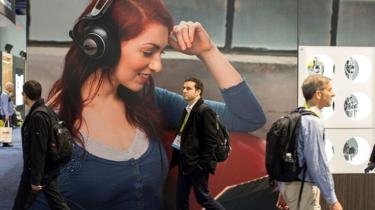
All aboard the (self-driving) bus - next stop, CES: Las Vegas' annual gigantic tech fest.
About 4,000 companies - many of them start-ups - are arriving in town this weekend. Over the coming days, they will reveal new products, secure orders and hopefully provide a taste of the future at the trade fair.
The event has its roots in consumer gadgets, but now sprawls into fields including artificial intelligence, automobiles, medicine, marketing and even agriculture.
Most of the big technology brands in attendance will have something new to brag about. But increasingly, they hold flagship products back for stand-alone events.
CESImage copyrightGETTY IMAGES
Image caption
A huge number of new products will be launched at the event
In recent years much of the excitement has instead been delivered by smaller, lesser-known companies for whom CES presents a "break-out" opportunity.
Below is a sample of what to expect, including several exclusive hands-on videos with some of the new tech:
Short presentational grey line
Artificial intelligence
If one firm could be said to have "won" last year's expo, it was Amazon.
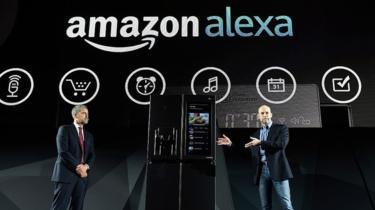
LG AlexaImage copyrightGETTY IMAGES
Image caption
Last year, LG added Alexa to its fridges but this year it is putting Google Assistant on its TVs
From fridges to cars, watches to robots, device-makers fell over themselves to support or build in its Alexa smart helper, leaving Google's Assistant trailing in its wake.
New cooking controls have just been added to the AI's capabilities, so watch out for a flurry of Alexa-connected microwaves this time round.
Google is, however, still in the fight.
Earlier this week, LG revealed its latest top-end TVs will feature the Assistant.
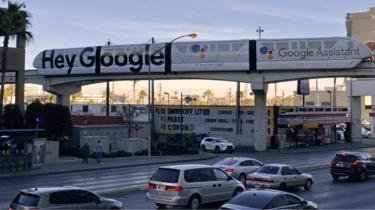
Las Vegas monorailImage copyrightBEN WOOD
Image caption
Google is doing all it can to make sure its Assistant has a high profile at this year's CES
And this year, the search giant has booked a CES booth to show off its AI, as well as splurging on a new paint job for the Las Vegas monorail to promote it.
While the battle to secure the most tie-ups will likely be intense, one trend to look out for is products that provide the best of both worlds.
GE has pre-announced a ceiling light that supports both companies' virtual assistants, and HTC already sells a smartphone that answers to both AIs' wake words.

GE LightImage copyrightGE
Image caption
GE's Smart Ceiling Fixture has a built-in speaker and microphones to let it control both Alexa and the Google Assistant
"We believe customer choice is important, and that multiple AIs can be complementary of each other," an Amazon spokesman told the BBC.
Elsewhere, expect "AI-enhanced" to be the buzz phrase of the moment, even if it's not always clear what that means.
"AI has become an overused term - often it just refers to there being a voice component or related cloud service," commented Simon Bryant from the consultancy Futuresource.
He added that the key question to ask was whether the promise of artificial intelligence meant a device or service would become better over time.
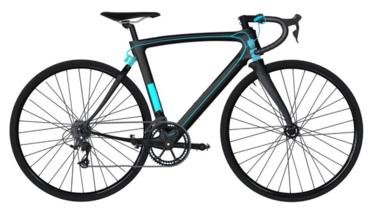
HiRide says it uses AI to estimate slope, roll, ground roughness and pedal frequency among other factors
So, to take one example, when HiRide Suspensions promises to show off a smart bicycle suspension system that uses AI, does it mean its electronics will learn to deliver a smoother ride over time, or merely that they have developed algorithms that would always deal with the same bump in the road in the same way?
The Italian start-up's pre-CES materials are unclear on the matter.
Short presentational grey line
Health
The so-called wellness market could prove to be CES' most vibrant sector this year.
One recent forecast suggested the world's annual healthcare spend will be nearly $9tn by the end of the decade. Both the big brands and start-ups believe there's an opportunity to disrupt a sector currently dominated by specialists.
ICI Vision glasses
ICI Vision glassesImage copyrightICI VISION
Image caption
ICI Vision is developing digital eyewear to help visually impaired people
Doubtless, not all the claims being made at CES will stand up to scrutiny, but it's heartening to see new tech trying to do something truly useful.
For example, Israel's ICI Vision is in town to promote a pair of prototype glasses designed to tackle blind spots caused by retinal diseases.
It is trying to combine small cameras, eye-tracking software and projection tech to direct views onto the healthy parts of the back of a patient's eye.
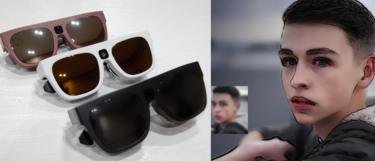
Samsung's Relumino glasses build on work the firm had been doing with its VR headset
Samsung is taking a different approach to visual impairments with Relumino - glasses that use a smartphone to process the wearer's view.
An app adds contrast, draws outlines and makes other colour changes to the view to make it clearer before floating the altered image into the eyewear's display.
Several firms are seeking to treat undesired behaviour via vibration-based "haptic" feedback.
Snore Circle eye maskImage copyrightVVFLY ELECTRONICS
Image caption
The Snore Circle Eye Mask reacts to snoring sounds as well as collecting sleep data about its user
They include Keen - a smart bracelet that buzzes if it detects the wearer pulling their hair or picking their skin - and Snore Circle - an eye-mask that vibrates at different levels of intensity to nudge the owner into a different position if they make noises at night.
New parents also appear to be a favoured target for the latest health tech.
Stand-out launches include Me.Mum, a smartphone camera attachment whose maker claims it can detect mould-like particles in a woman's saliva that signal when she is at her most fertile.
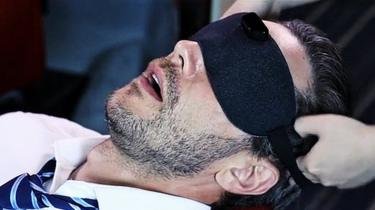
Hi! I am a robot. I just upvoted you! I found similar content that readers might be interested in:
https://firenewsfeed.com/technology/967898
Thank you for voting With you and with your support develops my Steam